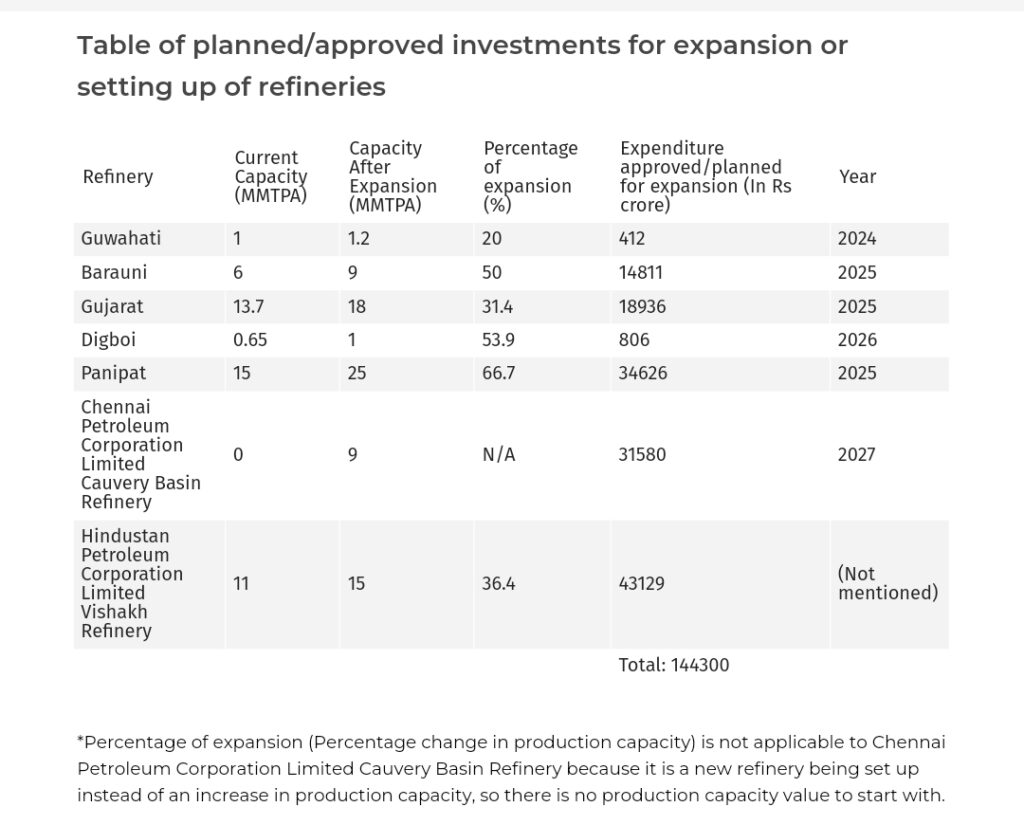Petroleum Ministry memorandum admits that transition to a clean-fuel economy will be slower than planned
Pratishtha Bagai | August 30, 2023
India will continue to rely on fossil fuels for the foreseeable future despite the Narendra Modi government’s vision to get the economy to transition to clean, renewable energy.
That’s the sobering assessment of the Ministry of Petroleum and Natural Gas, as outlined in a July memorandum to the Standing Committee of Parliament, which The Bottomline has accessed.
“Growing demand for coal and transport fuels and investments in existing and upcoming oil, gas and transport infrastructure crimp a speedy transition to a clean fuel economy,” according to the note.
The Ministry proposed a Rs.1,44,300 crore ($17 billion) investment to expand national oil refineries, which goes against the grain of the government’s intention to seek higher investments in renewable energy.
In the memorandum, the Ministry emphasised India’s plan to attract investments from oil-rich countries to set up new refineries, including from Saudi Aramco, and Abu Dhabi National Oil Company.
The increase in investments is necessitated by rising demand for oil products in the transport sector, the Ministry noted. The government has set aside 1.7% of the GDP for transport infrastructure this year (FY 2023-24).

Source: Ministry of Petroleum and Natural Gas
Credit: Pratishtha Bagai
The transport sector is India’s fastest-growing sector, and the world’s third-largest energy consumer, the document observed.
The Ministry expects a gradual shift towards electrification in the transport sector, along with the adoption of alternative drivetrain technologies such as liquified natural gas (LNG) and hydrogen for commercial vehicles. These transitions are expected to have a gradual impact on the demand for traditional fuels over the next two decades.
India’s target to produce 5 million tonnes of green hydrogen by 2030 is challenged by the cost, estimated at up to four times that of petrol.

